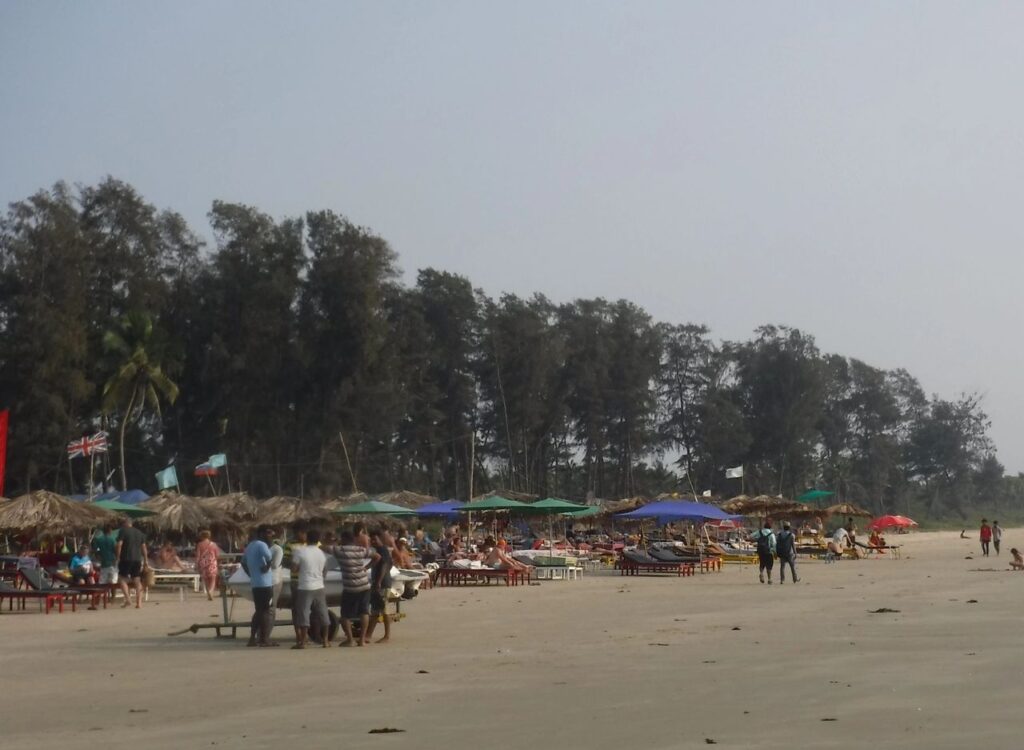
RITA’S GOURMET GOA
I had accompanied my husband on dozens of international business trips, before the light bulb went on that I should be taking local cooking classes on these excursions! The next scheduled trip happened to be India and this was exceptional because Indian cuisine is high on our list of favorites! India, being an enormously expansive country, boasts many regional cuisines, but we were headed for Goa, which is a beautiful region in southwestern India, south of Mumbai and situated along the Arabian Sea at the northern tip of the Indian Ocean. It claims miles and miles of beautiful white sand beaches, temples galore, spice farms and very fresh local cuisine!
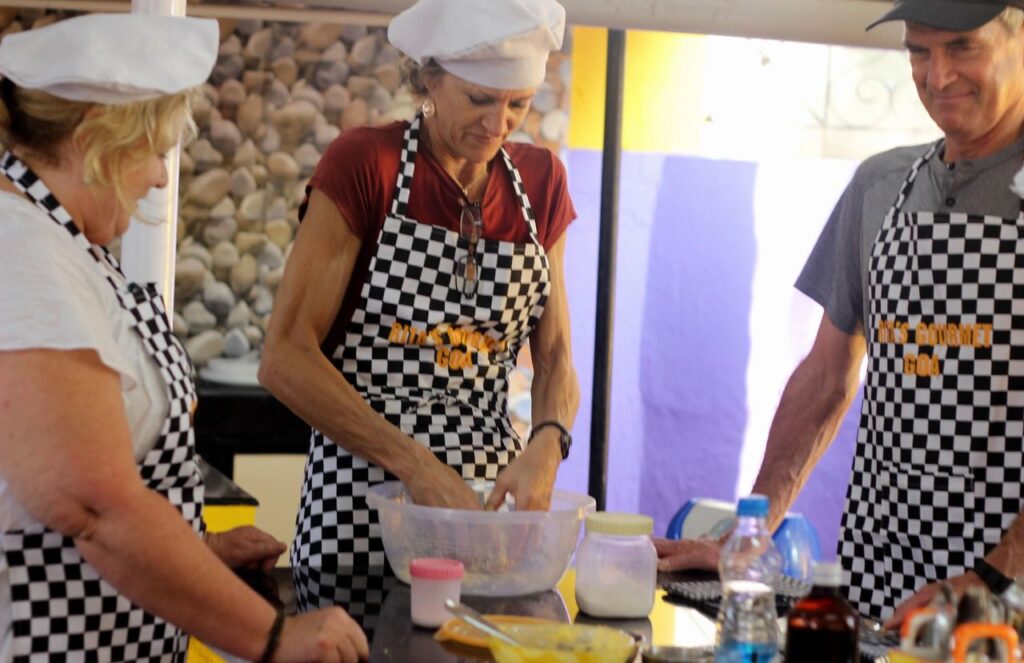
Goan cuisine is heavily influenced by Portuguese cuisine and fish is prominent in the diet there, in addition to coconut and coconut oil, chili peppers and spices. We signed up for Rita’s Gourmet Goa cooking class and market tour, which is located in the city of Dabolim, very close to the Goa International Airport and about a 30-minute drive from the coast.
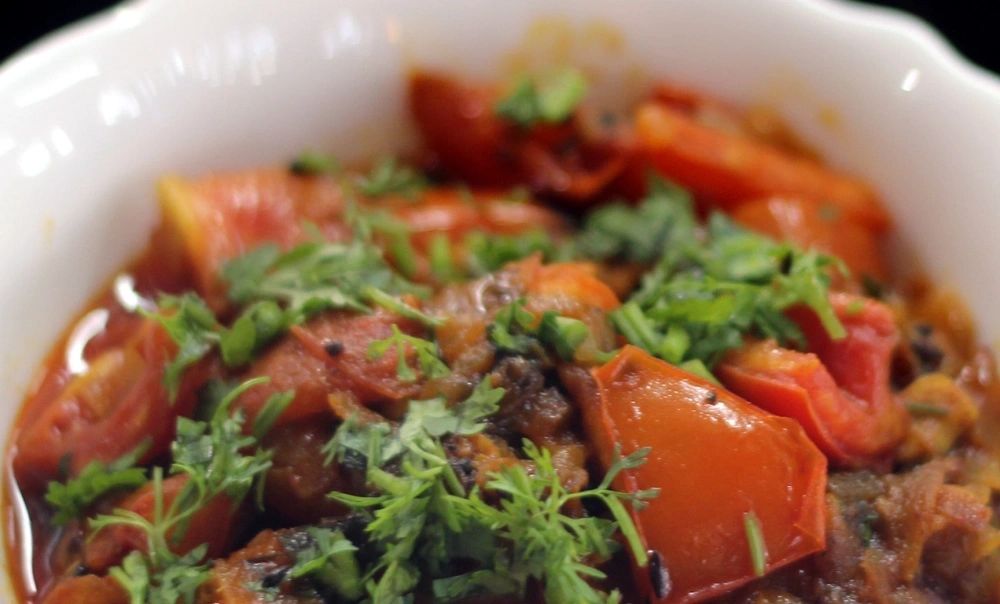
Our wonderful cookery experience began the second we arrived at Rita Shinde’s house with her beautiful (covered) outdoor kitchen and cooking school! We were early, but no matter, Rita’s husband, Mukund, greeted us with open arms, ready to make conversation and teach us all about masala chai (spiced tea)! He introduced us to the staff and all were so very friendly and accommodating.
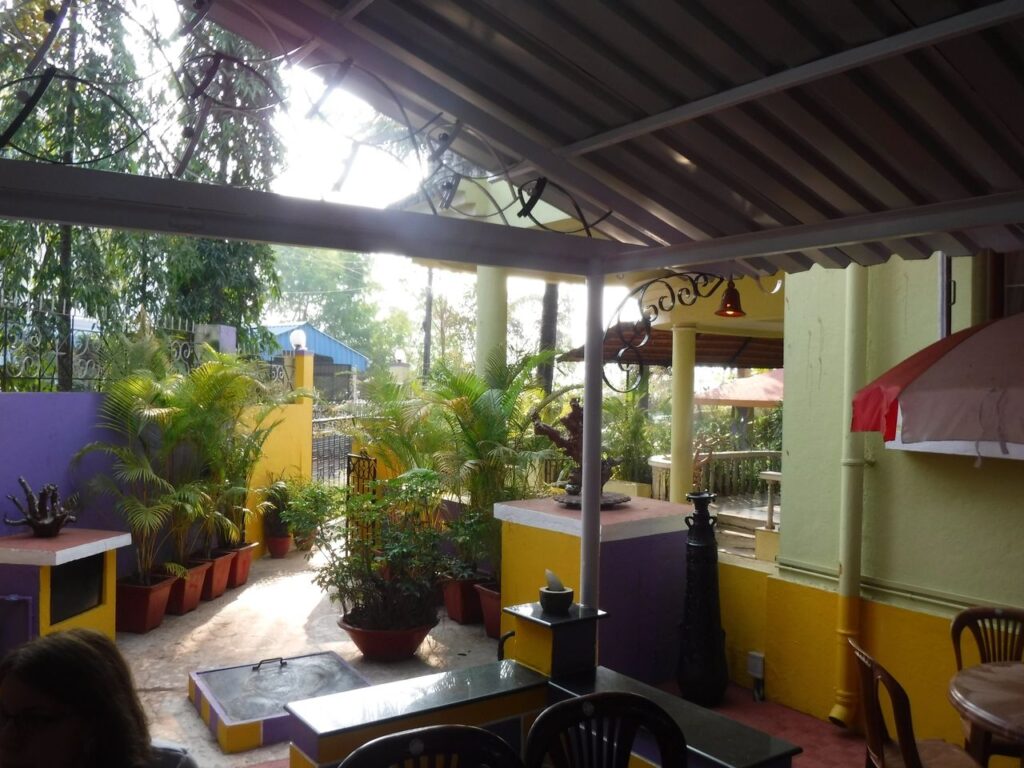
As soon as Rita arrived, the beautiful breakfast spread was set out and we feasted on sambar (a lentil-based vegetable stew), masala dosa, tomato and coconut chutneys and idli … a type of puffy bread for scooping up the delicious chutneys! The flavor combinations were mouthwatering!
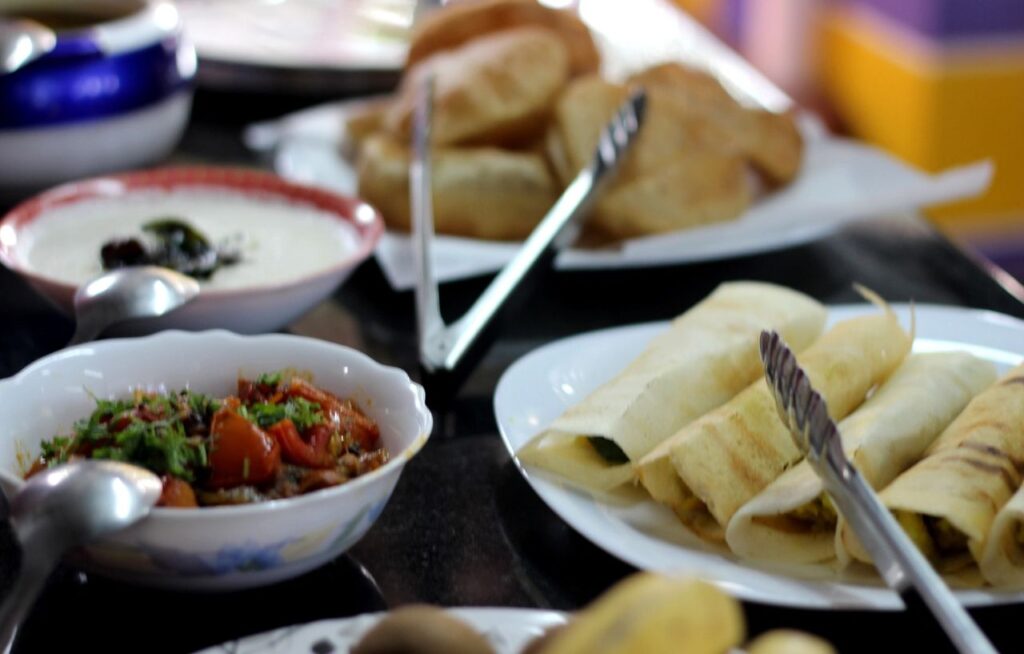
Well-fed and happy, we ventured off for the vibrant open market in town where an explosion of color fragments greeted us. Handcrafts and local delicacies were abundant and filled the booths with the rich hues of native produce, spices and local costumes.
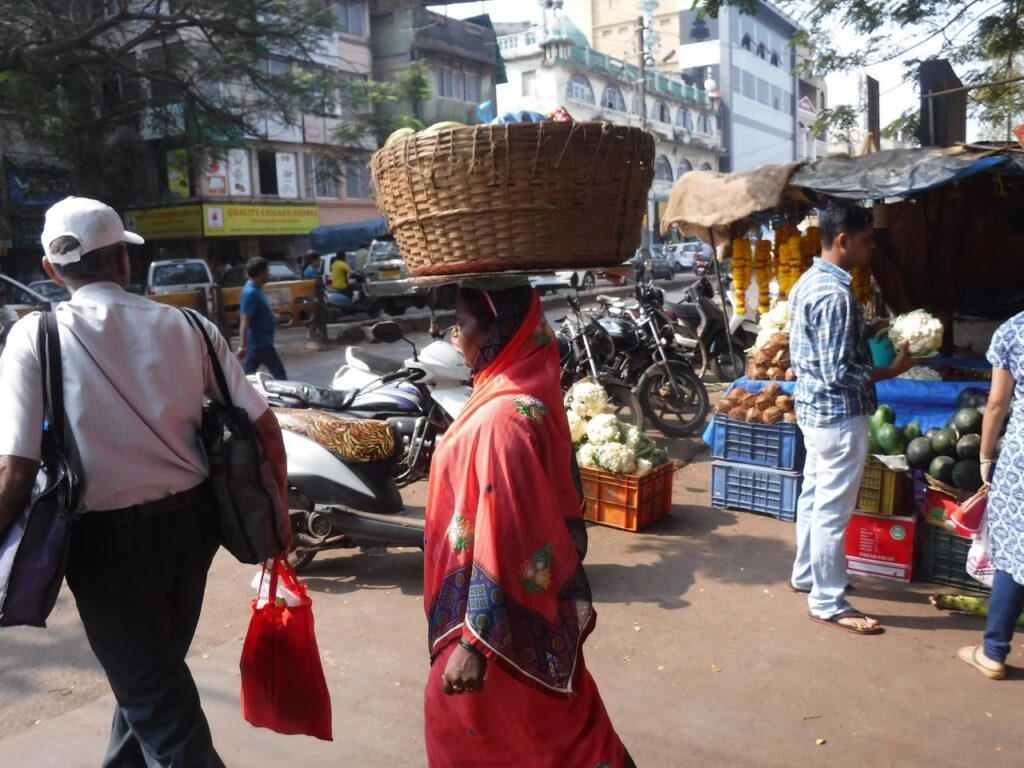
Rita introduced us to all sorts of new and unusual veggies, including red spinach, drumsticks (shajan), bottle gourd, bitter gourd (karela), ridged gourd, and snake beans, as well as many different peppers and spices. We learned that although bitter gourd is indeed very bitter, it is a staple in the Goan diet as it provides many health benefits with its antioxidant properties. It is said to act as a blood purifier by removing toxins from the blood. It also is said to lower blood sugar levels in diabetic patients, as well as hinder the growth of cancerous cells in the body. And, if all this isn’t enough, it helps to fight acne! Now, I don’t have firsthand knowledge of these health benefits, but learning about these foreign products was so much fun and educational.
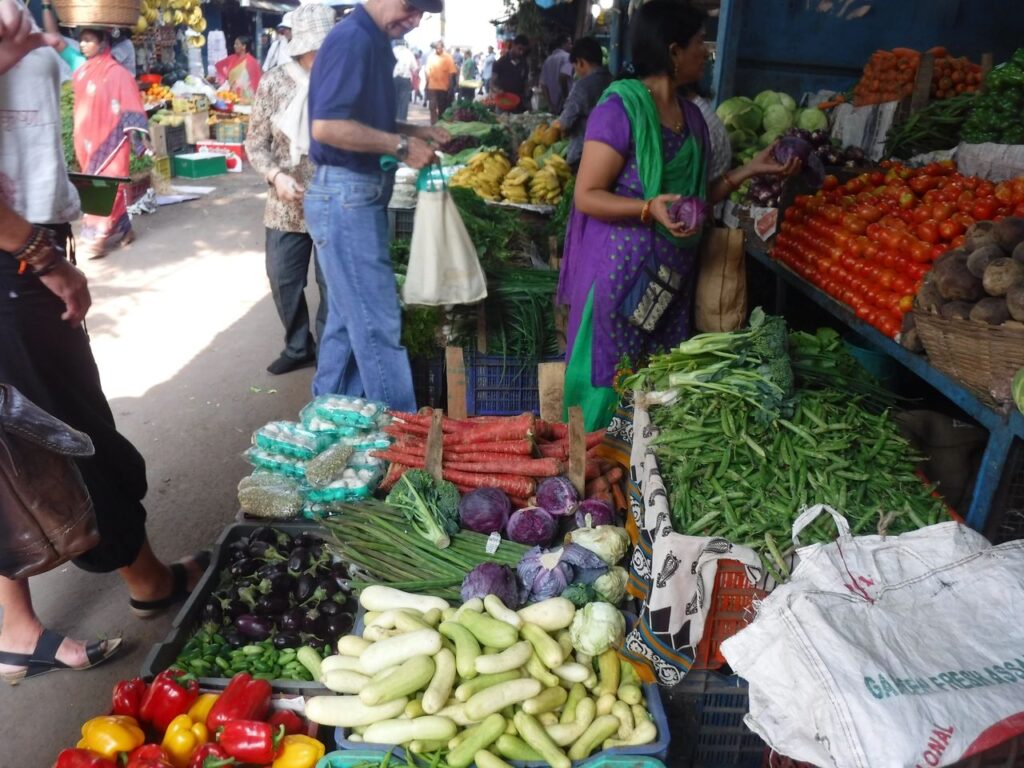
Next, we ventured forth to the fish market, which was rather challenging for me because I really hate the smell of fish, and a fish market is quite a fishy-smelling place! But, it was fun to watch Rita haggle with the vendors to get just the right price on her fish, which we would later use in her fish reacheado recipe. (Reacheado is masala paste made form a variety of spices, chilies, ginger and garlic.) We finally left the fish market and returned to the cooking school to begin preparations for our lunch. The feast consisted of a dish made from red spinach, three kinds of curry — green, red and yellow, as well as shrimp puffs and coconut tarts for dessert. Between our filling and fabulous breakfast and the lunch we made from our market findings, no one went hungry that day, that is for sure! You can find the recipe for Rita’s Chicken Cafreal in the recipe section of this website.
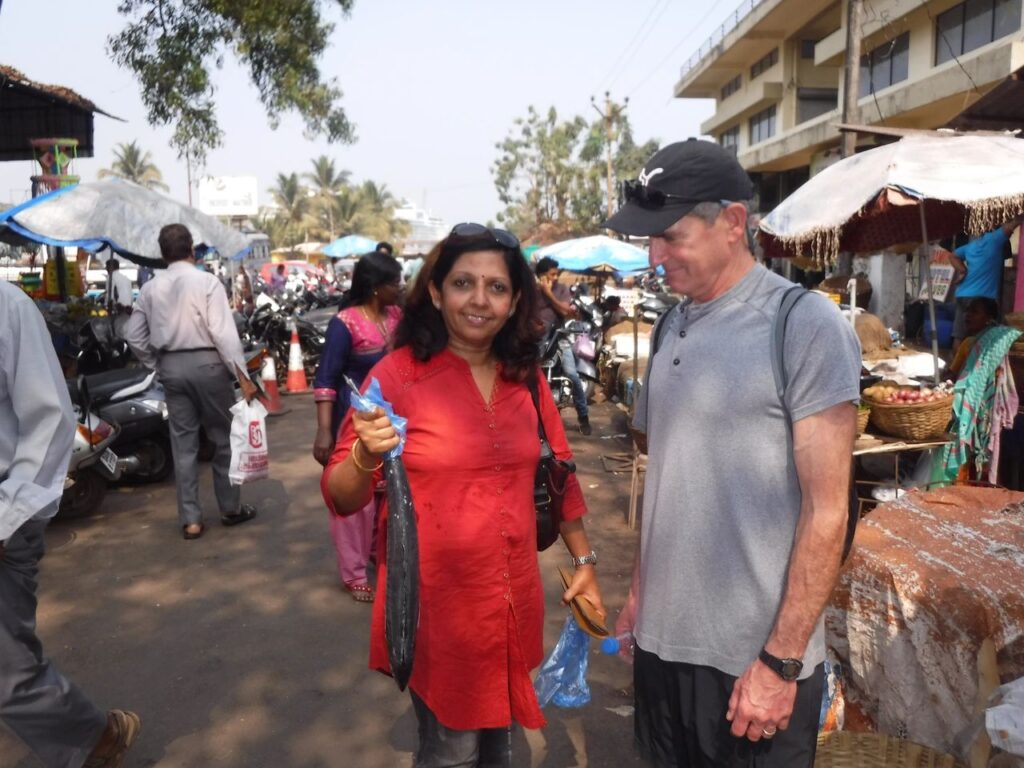
Rita’s kitchen is large enough to accommodate 8 to 10 students and the course is approximately $55 per person for a full day (5-hour course). Her instruction was really fun and interactive and absolutely delicious. When we returned home, however, I found that her written recipes were a bit difficult to follow without her there to interpret the measurements and steps required. I think she now has a digital recipe book and has made it a bit easier to follow. Nevertheless, we all left full, happy, and more educated on Indo-Goan cuisine! As a parting gift we were all provisioned with a Rita’s Gourmet Goa apron!
TROPICAL SPICE PLANTATION
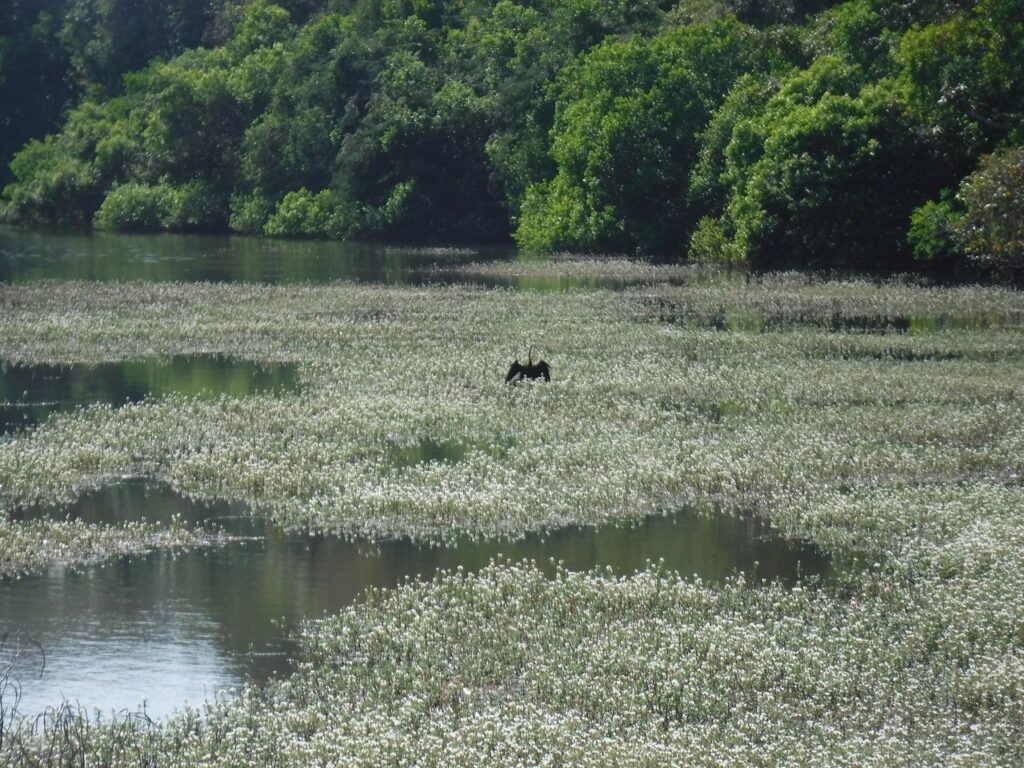
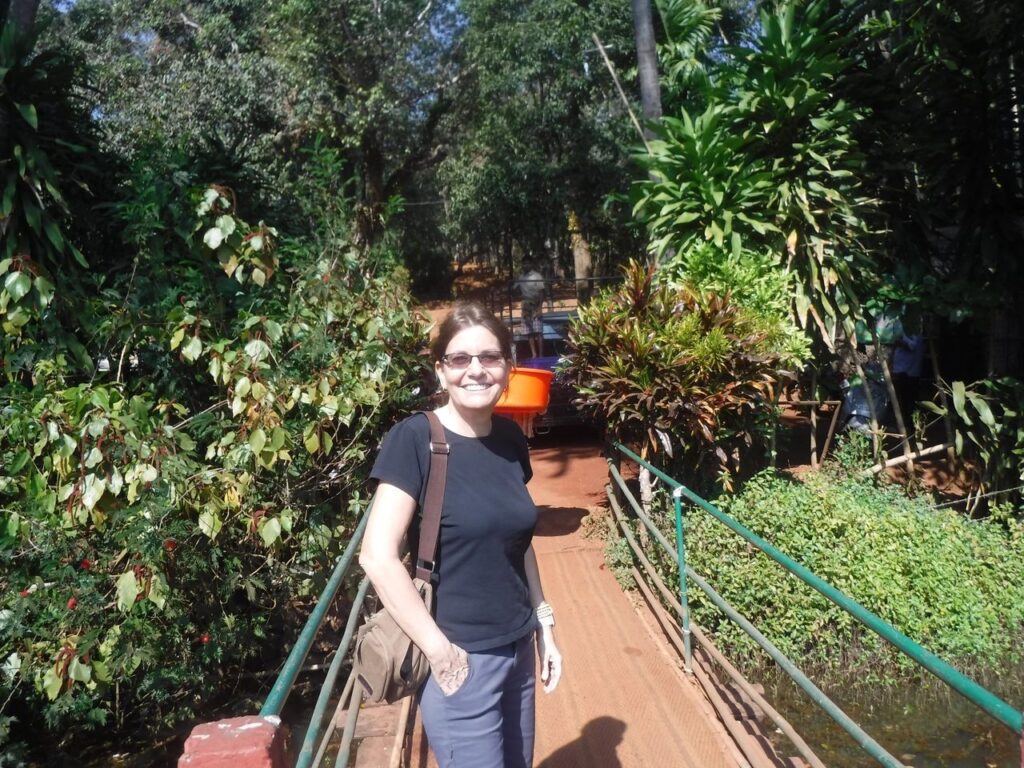
A few days later, I ventured off to the Tropical Spice Plantation in Ponda, Kerim, Goa not too far from from Panaji, the capital city of Goa. Darnell Grossi made the trek with me that day, since we are both adventurous and were both tagging along on the business trip. The plantation offers a guided tour, which is well worth the fare of roughly $10 or so. It’s a bit difficult to find, so it’s best to have a cab driver who knows the local terrain! It is an exceptionally peaceful and beautiful place from a nature perspective, with lush vegetation and jungly vines as far as the eye could see, and a scenic lagoon with many varieties of native birds, including some very large heron-like birds, sitting majestically upon the lake.
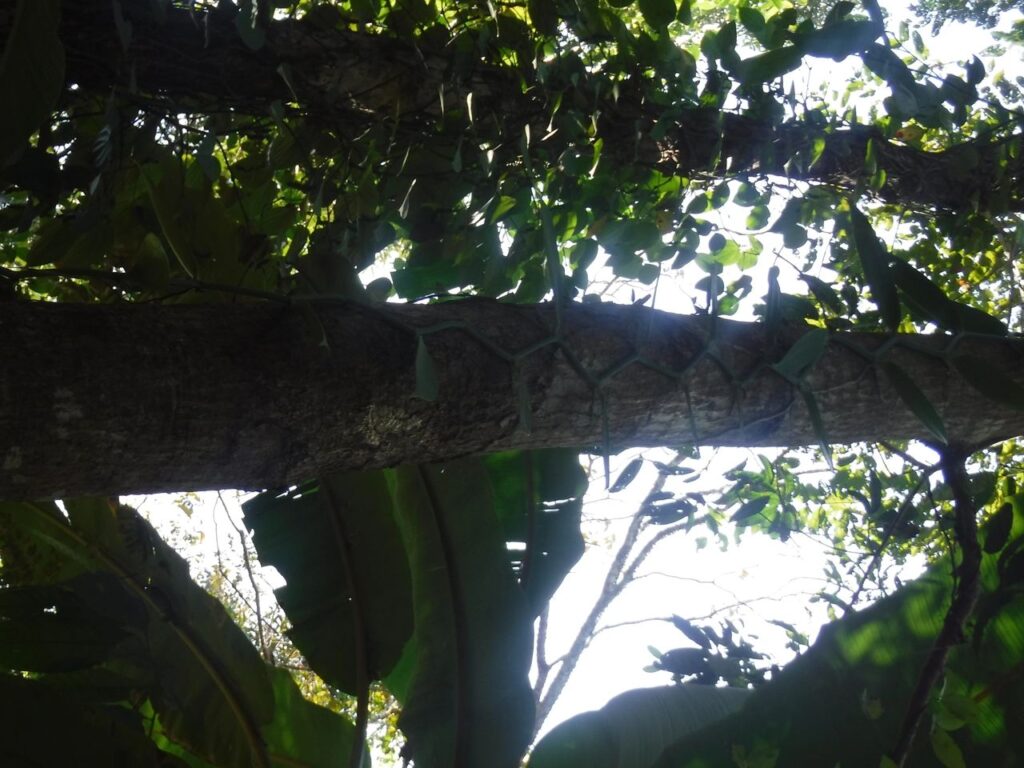
We learned how cinnamon stick is harvested by peeling the bark of Cinnamomum verum trees and how nutmeg and mace grow as separate parts to the same fruit, the nutmeg being the oval pit in the center and mace coming from the webbing that surrounds the pit. We also saw how vanilla beans and cashews grow. It turns out the vanilla orchids and beans grow on vines more or less hydroponically, without any sort of root system, but rather are a symbiotic growth on the bark of the trees. We had the best time learning about peppercorns and what the actual difference is between green, black and white peppercorns. Green peppercorns are unripe black peppercorns and are usually packaged in brine. Black peppercorns are green peppercorns that have been cooked in hot water and left out in the sun to dry. White peppercorns are black peppercorns that have had the skin removed, and are really just the seed of the peppercorn. But, perhaps the most interesting of all was how the cashew grows only one at a time, as a sort of appendage hanging from an apple-like fruit. No wonder cashews are so expensive!
The spice plantation is well worth a half a day if you find yourself in Goa and can pass up a few hours of beach time!
INFO BOX
Rita’s Gourmet Goa
Dobulam, Goa, India
Tropical Spice Plantation
Ponda, Goa, India
